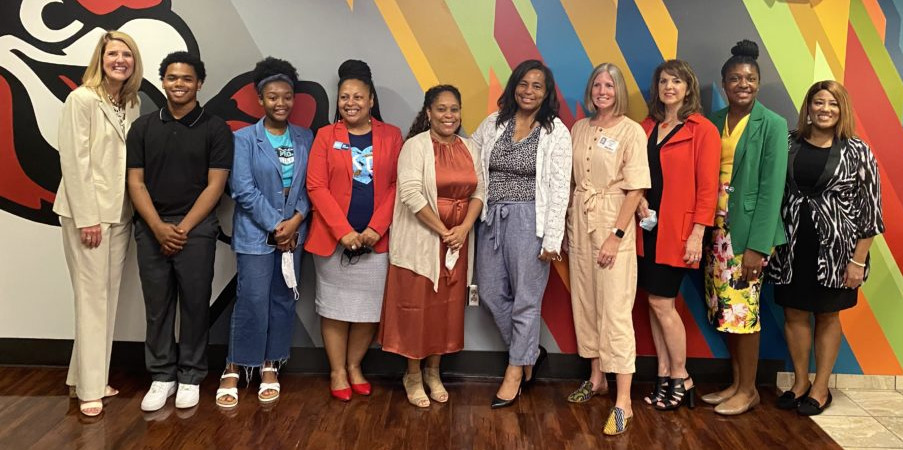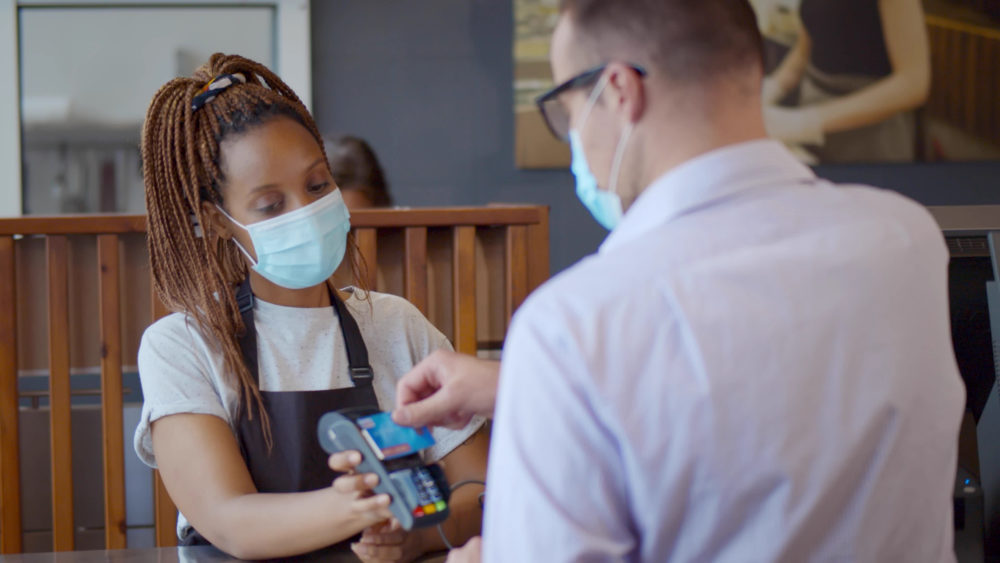Naomi Kabuya is an entrepreneur at heart. The 15-year-old from Kansas City, Missouri, started a business during the pandemic braiding hair.
“When I become older, I do want to become a stylist,” said Kabuya. “I do want to work for myself.”
Kabuya recently completed an internship at a local juicery where she learned skills related to entrepreneurship and financial literacy.
The internship program is part of a new initiative, Working for Youth, which launched in April and aims to change the trajectory of at-risk teens by expanding employment opportunities for young people in Kansas City.
In just the few months since it launched, Working for Youth has raised $600,000 and employed more than 400 young people ages 14 to 18 with 89 local employers and 33 community partners. More than 1,000 students applied.
 Due to the pandemic, the internships—which were paid—were offered in a hybrid model, virtually and in person.
Due to the pandemic, the internships—which were paid—were offered in a hybrid model, virtually and in person.
Working for Youth brought together three organizations already working in Kansas City, led by KC Common Good, which is dedicated to addressing the root causes of violence.
“This was a long-term investment in our youth to reduce violence and expand opportunities at capacity,” said Klassie Alcine, president of KC Common Good, which spearheaded the fundraising effort. “We made a big ask because we knew the need was very high.”
The pandemic posed unique challenges and forced the program to adapt in real time to changing conditions.
For example, many of the youth had to return their laptops to their schools before the internships started. In response, programs adjusted so that youth could participate on a smartphone when needed. When covid-19 case numbers allowed, meetings were held in person. When cases spiked, the internships would switch back online.
“It affected things every step of the way,” said William Dowdell with Hire KC and KC Social Innovation Center, both participating organizations.
‘“There are a lot of unknowns,” he added. “It requires everyone to be pretty agile and demonstrate a lot of grace.”
In a few cases the internships had to be changed because the students were working with elderly populations in community health, he said.
“I think kids were pretty isolated with their jobs this summer,” Dowdell added.

Courtesy of Working for Youth
Working for Youth has raised $600,000 and employed more than 400 young people ages 14 to 18 with 89 local employers and 33 community partners.
Still, 17-year-old Keinan Ross, who interned at the juicery as well, found that he was able to network, which he found beneficial.
“I have to learn to get my name out there,” he said.
Working For Youth was inspired by a Nebraska-based nonprofit called Step Up Omaha, which started in 2008 to create additional opportunities for youth who had been historically marginalized.
Thalia Cherry, CEO of Cherry Co. and founder of Entrepreneurship KC, one of the participating nonprofits, said youth must be able to imagine possibilities for their future, and that depends on accessing different types of opportunities.
“When you give them access to possibilities, that transcends,” she said. “It doesn’t matter your race or your background, that’s what really transcends.”
Cherry, who designed the internships for the students taking part in the Entrepreneurship KC program, said she wanted to focus on building skills like time management and responsibility. They also needed to be accessible virtually to help marginalized youth who may lack transportation.
“It now opens the door to so many to have that access that they wouldn’t have had before,” she said.
Kabuya, the 15-year-old who started her own hair braiding business, said she plans to use those skills to help pay for college, especially because she hopes to attend a historically Black college where she anticipates demand will be high.
She said her internship taught her many valuable lessons, including delayed gratification and flexibility.
“I make plans for everything, and sometimes when they don’t go that way I can get stressed out. But this internship helped me learn to adapt to new circumstances,” she said. “I think that will help me in life in general, not just in business.”






























